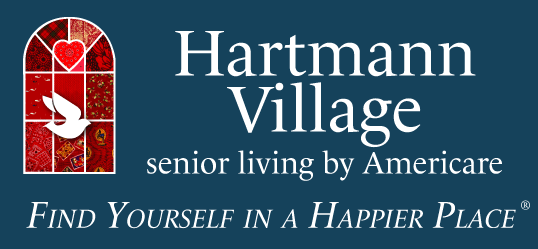Size. Instead of a large multi-building, multi-winged campus, our intimate enclaves of cottages and patio homes are nestled next to a sister assisted living facility. We offer privacy without isolation.


FAQs
You’ve got questions. We’ve got answers. See our Frequently Asked Questions below. If you do not see an answer to your question, please contact us and we’ll be happy to help.
What Is Independent Living?
Independent senior living communities offer maintenance-free living for those seeking a balance between independence and security. These "retirement" communities range in size - from large campuses to smaller enclaves of homes. Service packages also vary; While most include home maintenance - others provide dining and social activities.
Absolutely. In fact these efficient homes are perfect for those looking to downsize but who have special items they just can't part with. Window treatments are included.
You leave that to us. We provide bi-weekly housekeeping with optional flat linen service. All repairs and maintenance - both inside and out - are taken care of.
That's part of Americare's independent living package. We know that for many seniors - just knowing someone is there when they need them - is all the security they need to live independently. We provide it with 24-hour emergency voice response.
No. Our leases run month to month. That way you stay in control of your money and can use it when and how you want to. Why pay for care now that you might need down the road? At Americare we believe independent living should also mean financial independence.
Generally speaking, when an individual living at home can no longer be assisted with "scheduled care" (either by family or home health agencies) - and requires more "care on demand", assisted living becomes an attractive option.
This would include assistance that is available 24-hours a day - whenever the resident needs it. Protective oversight, on-going medication management, nutritional support and personal assistance with dressing and bathing are all examples of care on demand.
Many residents live their remaining years quite comfortably in the assisted living setting. Since supportive care is provided (assistance with bathing, medication monitoring, meal preparation), living in an assisted living setting can significantly reduce the risk of serious health setbacks that might necessitate a higher level of care. In addition, Medicare home health services, rehabilitation and even Hospice services can all be accessed in an assisted living community. Certainly meeting a resident's needs is the number one priority and should a higher level of care be required, skilled nursing (both short and long-term) is a viable next step.
Skilled nursing and rehabilitation care is reserved for individuals with often complex medical needs requiring the "skill" of licensed nurses and therapists. Skilled nursing and rehabilitation is appropriate for seniors recovering from stroke or surgery that needs intensive, 7-day a week therapies. In addition, if a resident regularly requires the assistance of another to move from bed to chair, or is confined to bed due to their condition, they are generally more appropriate for the skilled nursing and rehabilitation setting.
What is Assisted Living?
An assisted living residence provides a combination of housing, supportive services and health care designed to meet the needs - both scheduled and unscheduled - of those seniors who need help with activities of daily living such as bathing, dressing, meal preparation and medication monitoring (Assisted Living Federation of America). Most states define a resident appropriate for assisted living care as one who can negotiate a pathway to safety in case of emergencies with no or little assistance from another person. These are broad definitions and each state regulates this level of care a bit differently.
